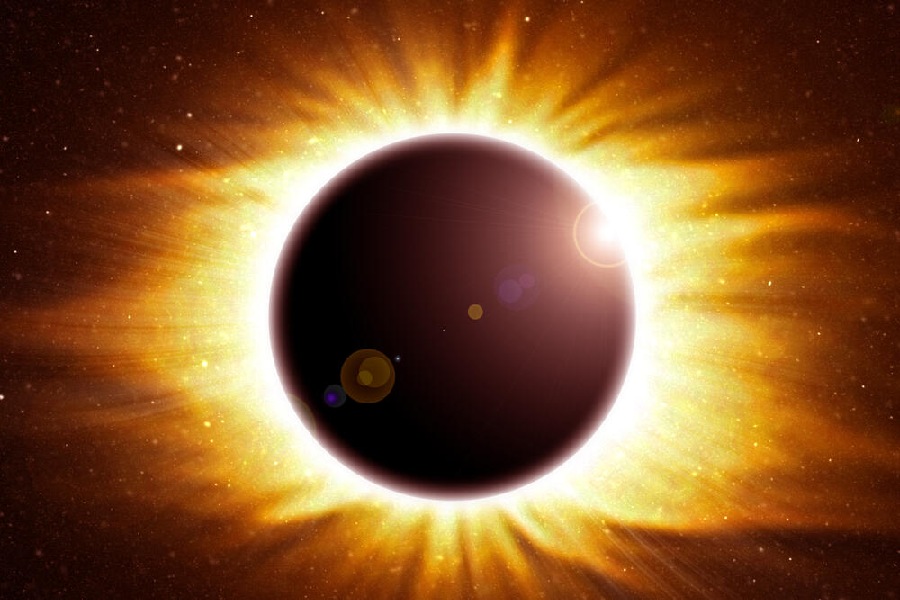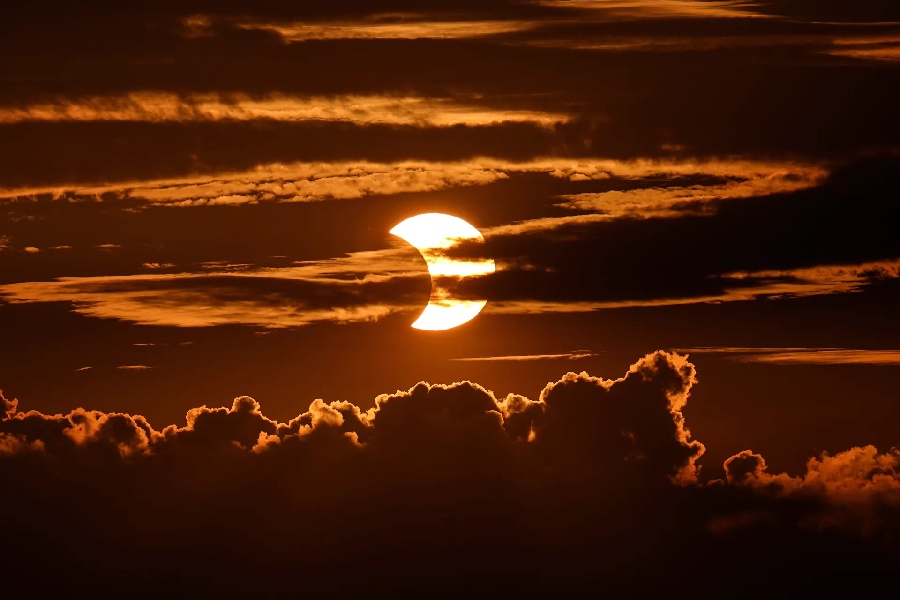Lunar eclipses have been a source of wonder and fascination for people throughout history. These events occur when the Earth’s shadow falls on the moon, causing it to take on a reddish hue. While lunar eclipses are captivating to observe, some people have expressed concerns about potential risks to their eyesight. But is a lunar eclipse the same as a solar eclipse? More specifically, can lunar eclipse blind you?
In this article, we’ll explore the fundamental differences between lunar and solar eclipses and examine the possible risks (if any) associated with observing a lunar eclipse. Additionally, we’ll provide you with the information needed to safely view and appreciate these remarkable astronomical occurrences.

Can Lunar Eclipse Blind You?
No, observing a lunar eclipse cannot blind you. During a lunar eclipse, the Earth passes between the Sun and the Moon, casting a shadow on the Moon. Unlike solar eclipses, it’s safe to view lunar eclipses with the naked eye.
The moonlight during a lunar eclipse poses no harm to your eyes, so there’s no risk of blindness. However, for solar eclipses, looking directly at the Sun without proper eye protection can cause damage to your eyes.
Eye Safety During Lunar Eclipses
Explanation of eye safety
Can you stare at a lunar eclipse? It is perfectly safe to view the moon during a lunar eclipse, as the moon does not emit harmful rays; it only reflects sunlight. During an eclipse, the moon’s light is dimmed.
A lunar eclipse occurs when the Earth passes between the sun and the moon, causing the Earth’s shadow to cover the moon. This blocks sunlight from reaching the moon, making the moon’s surface appear reddish or darker. However, the light is not intense enough to damage the eyes.
Comparison with solar eclipses
Unlike lunar eclipses, solar eclipses can be dangerous to view because the sun’s rays are directly visible, and looking at the sun can cause permanent eye damage.
Solar eclipses require special filters or viewing techniques for safe observation. In contrast, lunar eclipses do not require any eye protection since the moon’s light is dim and safe. However, it’s important to remember that one should never look directly at the sun, even during a lunar eclipse.
Tips for safe observation
You can safely view a lunar eclipse with the naked eye. Find a comfortable spot with a clear view and enjoy the gradual darkening of the moon; no special equipment is needed. Relax and take in the celestial spectacle, as lunar eclipses are a rare treat.
Savor the changing colors of the moon throughout the event. Feel free to use binoculars or telescopes for a closer look.
Myths and Misconceptions About Lunar Eclipses
False beliefs
Many people believe that looking at the moon during an eclipse is harmful, but this is a widespread misconception. The eclipsed moon poses no threat to the eyes.
Lunar eclipses occur when the Earth blocks sunlight from reaching the moon, causing the moon’s surface to appear darker or reddish. However, the moon’s light is not intense enough to damage the eyes.
It’s important to debunk these myths and provide accurate information about eye safety during lunar eclipses. By doing so, we can help people enjoy these celestial events without unnecessary fear or concern.
Cultural and historical perceptions
In many cultures, lunar eclipses were seen as ominous events, often associated with superstitions and mythological beliefs. These perceptions may have contributed to fears about viewing lunar eclipses.
Ancient cultures often attributed celestial events to supernatural causes, and lunar eclipses were no exception. They were sometimes seen as signs of impending doom, which could have led to beliefs about their potential to cause harm.
Addressing misconceptions
Public education and awareness campaigns can play a vital role in dispelling myths about lunar eclipses. Experts should provide accurate information through various channels to counter false beliefs and promote a better understanding of these celestial events. Correcting misconceptions is crucial for encouraging safe eclipse viewing practices.
By equipping people with the right knowledge, they can feel confident in enjoying this natural phenomenon without undue worry. Ultimately, accurate information ensures that everyone can have a positive and enriching experience when observing lunar eclipses.

Conclusion
We hope this article has helped you realize that the lunar eclipse is a celestial phenomenon. It can be safely enjoyed without any risk to your eyesight. The question about the lunar eclipse or, more specifically, can lunar eclipse blind you has been thoroughly addressed, debunking the myths and misconceptions surrounding eye safety during this event.
By exploring the scientific explanations, cultural perceptions, and practical tips, we have provided accurate information. This information empowers you to witness lunar eclipses without fear or unnecessary precautions.
Embrace these natural wonders with confidence. Be secure in the knowledge that observing the moon’s reddish hue during an eclipse is a harmless and awe-inspiring experience.
